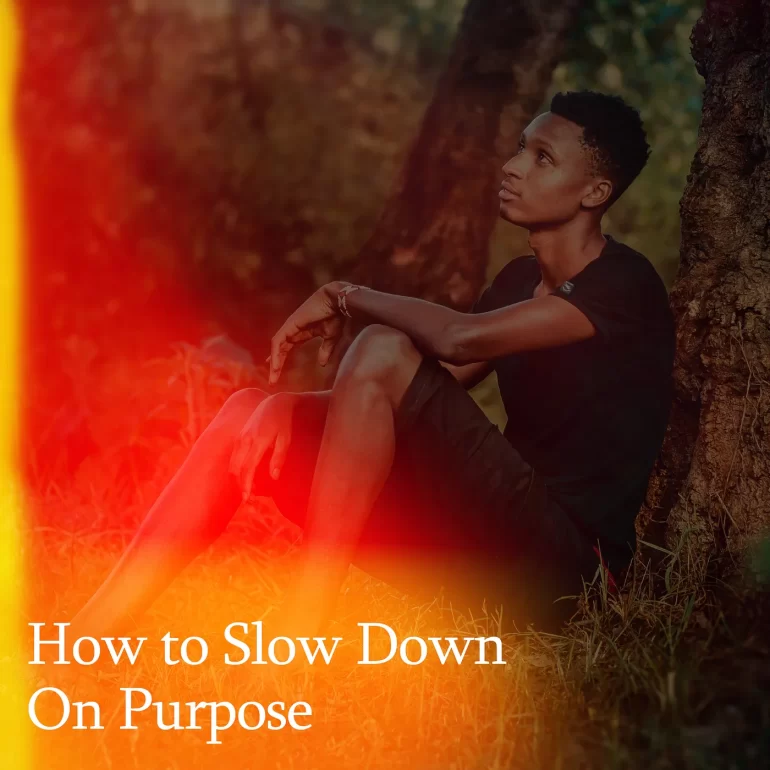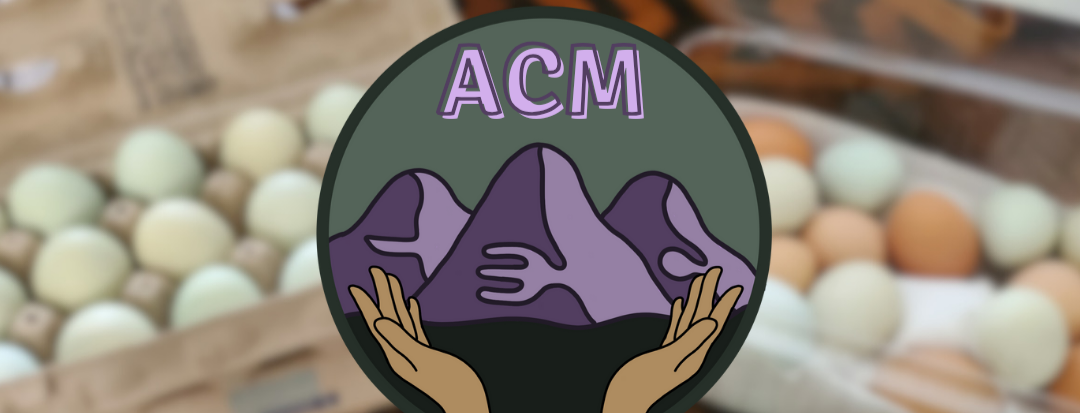Remembering the importance of loving yourself enough to re-claim your time.
With Valentine’s Day focused largely on romantic relationships, we at Moneyless Society thought it important to share a reminder of the importance of self-love. It takes many forms, and will carry you through the times when romantic love is absent or simply inadequate. This blog entry is about loving yourself enough to slow down, and claim your time for yourself. We love you, and think you should love you, too.
By: Ev Malcolm, a Moneyless Society volunteer, storyteller, and content creator.
If you’re not a millionaire living on a private island,
you probably have the same sense that I have when I wake up in the morning — that the clock is ticking. You’re already running short on time, from the moment you open your eyes. This is not a Forbes Top 100 article about “getting more done with one simple trick” — I want to share with you some ideas about slowing down, and clawing back the most important possession that you have in your life; your time.
If you find yourself playing mental time chess every single day — anticipating and reconfiguring and stressing over a life that is packed wall-to-wall with obligations — you probably also have a gnawing sense in your gut that you’re not supposed to feel so stressed out. Our Western, individualist culture tells you that it’s your problem, even your fault, that you feel stressed. That you should just do some yoga, take a nap, take a pill. But what if you actually need to be doing less? Or doing everything more slowly?
“I welcomed shots of
peace, tattered shards of
happiness.”
Late last year I attended a large group meditation session with a couple of guy friends who were having a particularly hard time with life. Near the end of the hour, the guide asked us to stand and walk very slowly around the room, winding past the rows of seats in single file. All three of us found that we could barely balance while walking that slow. It felt awkward and unstable. And that’s exactly how it feels when you start to slow down your life.
Let that be proof enough that I’m not speaking from a place of perfection, or mastery. I’ve felt the tug of Eastern philosophy for decades, but I’m just as tech-rattled and schedule-obsessed as the next person. And I’ve found that I feel the most real meaning when I stumble into opportunities for stillness and quiet. When I realize I’m walking too quickly for no reason, or rushing to finish chores around my apartment, I choose to slow down.
It’s become a small habit to linger in those moments for as long as I can. If the sun isn’t quite up, I’ll force myself to resist the temptation of checking my phone. I’ll sit by the window and stretch the neglected joints that are compressed for hours every day while I speed through desktop obligations. If I suddenly realize in the middle of the afternoon that I’m overwhelmed, or angry, or nervous — rather than submitting to the spiral, I’ll ask myself some questions.
Are you breathing? Really breathing?
Is your body tense?
How do you want to feel, right now?
None of this comes naturally to people living in a culture that only rewards productivity and personal sacrifice. The reflexive response to the idea of slowing down, or letting go of our productive anxiety is, “but this has to get done, people are counting on me!” And sometimes that is true. But it can’t be true of everything.
Maybe there are three things, or even just one thing that you have to get done today — and if your list is packed with dozens of things at that level of urgency, then you probably have too much responsibility for one person. A wonderful book called Stolen Focus, by journalist Johann Hari, explains how the human mind isn’t actually capable of working on more than one task at a time. What we consider multi-tasking is really just rapid attention switching, which produces poorer results for each additional task we stretch our minds between.
Even when we manage to slog through the obligation pile-up, the sense of accomplishment we feel at the end will only be satisfying if we’re working on things that we truly care about. Every day we sell or give away hours and hours of our time to people and places that give nothing back. Certainly you need to work in order to survive, but do you need to give work every bit of your mental peace away, and more? Would it be possible to do less each day, working at a comfortable pace, in order to do a better job and not feel exhausted and miserable by the time you’re done?
“Cautiously, I allowed
myself to feel good
at times.”
The hours of your life are your most valuable possession. Money will come and it will go. Clothes and cars and homes will bring great enjoyment, until they fade and are replaced. But the minutes you spend doing what you feel is important, or meaningful, can never be un-spent or lost. And it is possible to spend more time in each of those moments. If you can take your foot off of the accelerator, and try not to rush to every next destination just to cross it off the ever-expanding list, your days and weeks and months and years won’t blur together behind you.

When you find yourself inhaling a meal between meetings, choose to stop and think about every different flavor you taste. When you feel trapped behind a desk or in an office, make a note of every different color that you see around you. Close your eyes and identify every sound you can hear — especially the distant ones you’d normally never notice. When you’re walking to your car, or to your home, do it as slowly as is comfortable, on purpose, and ask yourself if you’re breathing. Make that choice, whenever you remember that you can choose, and ask yourself how you want to feel.
You may find that very often, you don’t feel the way you want to. And when you begin to figure out why, you can begin to make new choices which do support the way you want to feel. Be open. Be honest. Have courage.
You stand to gain everything by claiming more time in your life for yourself. Your ability, your intention, will inspire others to slow down, too — creating an environment where tension and panic aren’t the baseline, replaced instead by stability, comfort, and meaning. That is the vision Moneyless Society has for a post-capitalist community. A place where your time is your own, and your “job” is to really care for one another, and yourself.
When a community of any size is rooted in reciprocity (mutual sharing) rather than productivity, the grind falls away. Time feels wide and full, rather than scarce and wasted. That life is not only possible, it is already lived by a wide range of cultures outside of the industrial West. They don’t live in stick huts or caves, either — they have simply chosen not to give all of their life, all of their time, over to rush hours and deadlines. So choose love, for yourself and those around you. Choose slowness. See how it refills your cup and restores some wonder to your world.
“I found moments of
peace in cheap
rooms
just staring at the
knobs of some
dresser
or listening to the
rain in the
dark.
the less I needed
the better I
felt.”
Charles Bukowski, “Let It Enfold You”
If you’d like to get involved in helping to make a “moneyless society” a reality in your local community, you can sign up to be a volunteer here, join our discord, and/or connect with us on social media by following @MoneylessSociety.
We also encourage you to check out the new book by our co-founder, Matthew Holten, Moneyless Society: The Next Economic Evolution, and our podcast to learn more about who we are, what we do, and how you too can help create a new, better, and more sustainable future.
To see more thoughtful content from Ev Malcolm, you can visit his Instagram page here.


